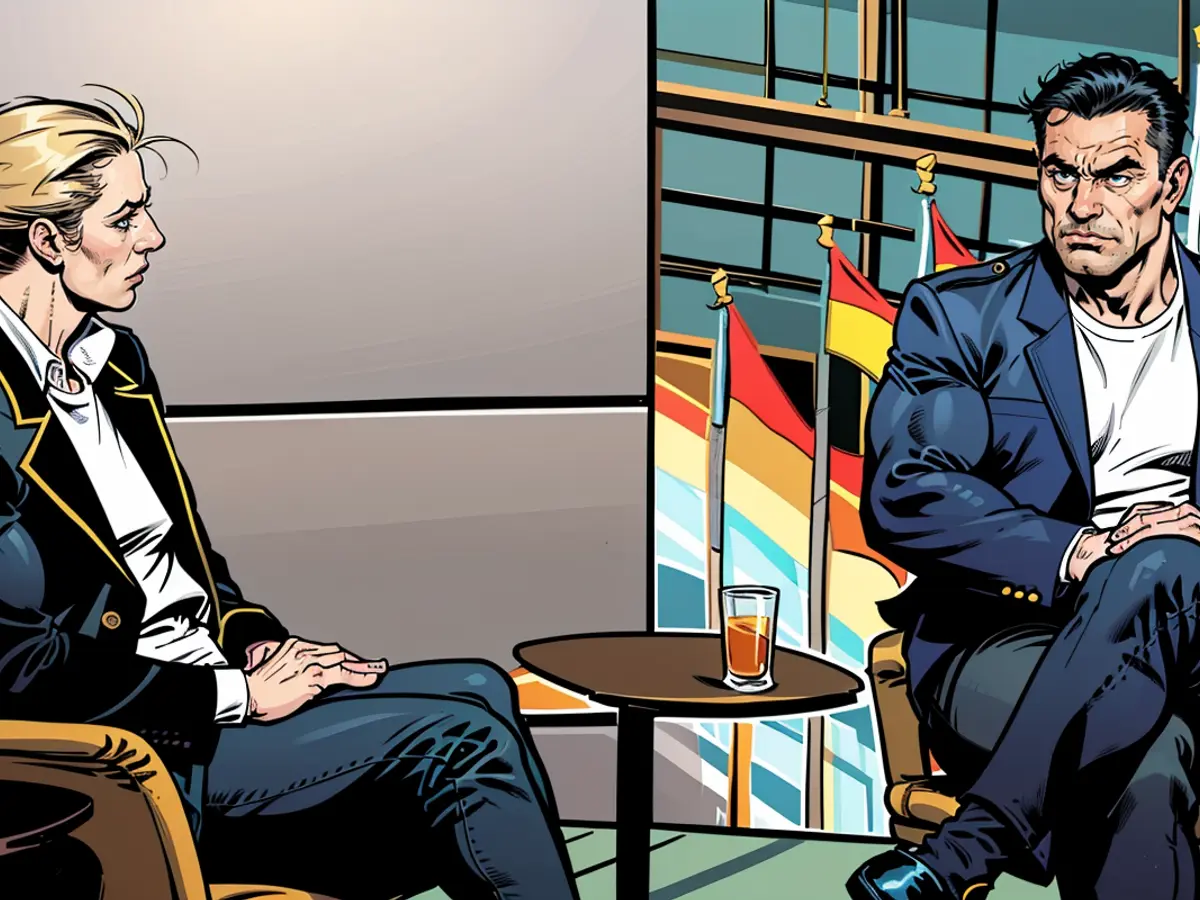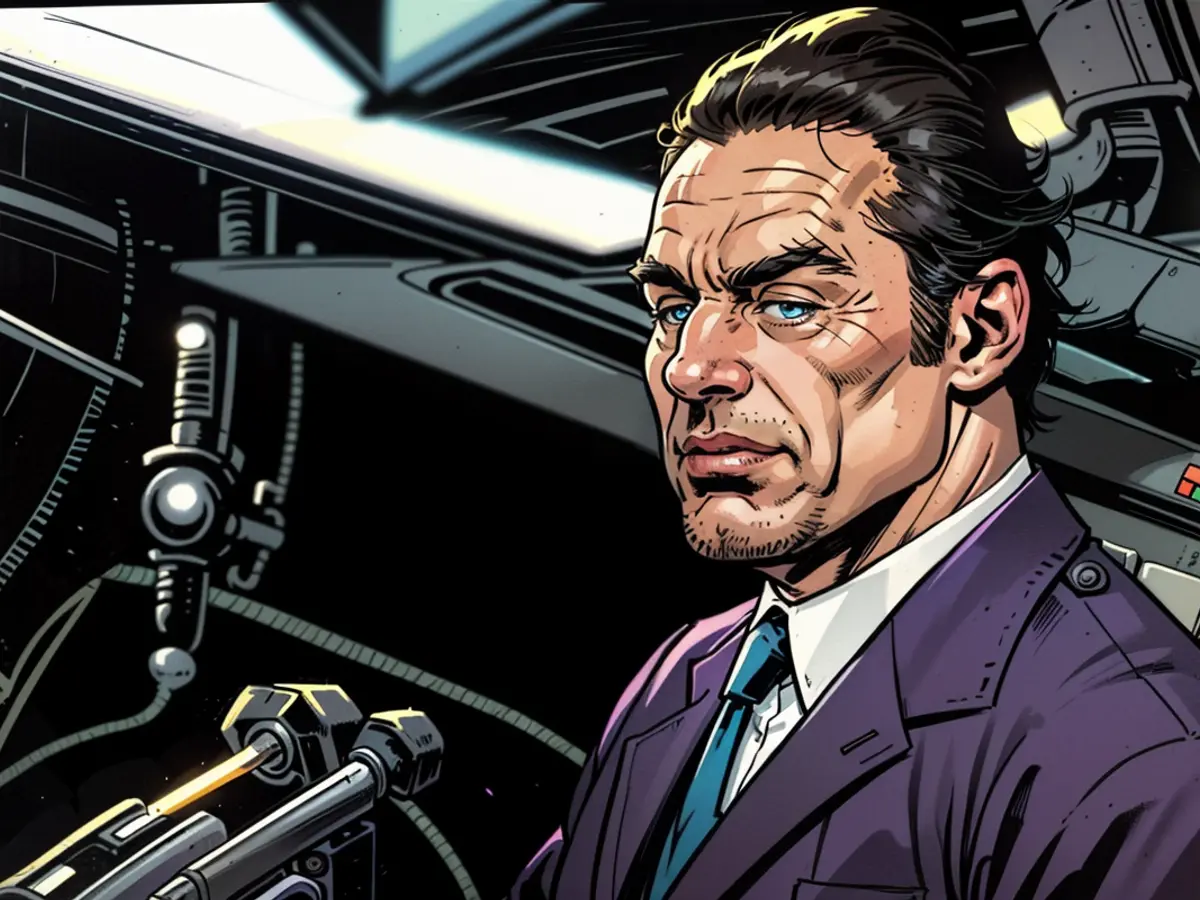Following the completion of European polls. - The CDU calls for a vote of confidence from Scholz; what happens if the chancellor takes a risky move?
After the polling stations closed, CDU General Secretary Carsten Linnemann made his move. "Frankly, Scholz needs to put forward the question of confidence," he said during an interview with ARD. "Either the traffic light coalition changes course or it needs to pave the way for fresh elections."
Although this demand wasn't new - Linnemann had made it known on other occasions - it gained more weight given the disastrous European election results for the traffic light parties. The objective of Linnemann is clear: he wants the Union to take power before the scheduled Bundestag elections in 2025.
Confidence votes: Five times it's been tried
A route to new elections is through a motion of no confidence in the Federal Chancellor in the Bundestag, as stipulated in Article 68 of the Basic Law: "If the Federal Chancellor's motion to withdraw confidence does not receive the support of a majority of Bundestag members, the Bundestag President, upon request of the Federal Chancellor, may dissolve the Bundestag within 20 days."
The procedure is straightforward: the Federal Chancellor can put forward the motion at any time and request a loss of confidence in the Bundestag. If he doesn't win a majority, he can ask the Bundestag President to dissolve the Bundestag and call for fresh elections. If a government loses a confidence vote, it demonstrates it has lost the ability to act effectively. On the other hand, a successful confidence vote can strengthen the government factions and keep new elections at bay.
Since the founding of the Federal Republic, five chancellors have sought a confidence vote. In 1972, Chancellor Willy Brandt of the SPD lost the confidence of a Bundestag majority after some lawmakers defected to the Union. The Bundestag was dissolved, the SPD recorded a record result in the early elections, and Brandt retained his position.
In 1982, two showdowns took place in the Bundestag over issues of disarmament and labor market policy in Chancellor Helmut Schmidt's (SPD) social-liberal coalition. The confidence vote was meant to unite the alliance, with success: Schmidt remained in office temporarily before the coalition fell apart in September 1982.
Helmut Kohl from the CDU exploited this situation and managed to gather a coalition of Union and FDP MPs behind him. He became the next Federal Chancellor through a constructive no-confidence vote, but with the intention of losing it and triggering new elections, as the Bundestag had no self-dissolution right. The early Bundestag election in 1983 resulted in a black-yellow coalition and Kohl as Chancellor.
It took 19 years for another chancellor to seek a confidence vote. SPD Chancellor Gerhard Schroeder connected it with a specific issue, namely deploying German troops to Afghanistan to assist the US fight against international terrorism. The government coalitions of the SPD and Greens were divided on this issue, and Schroeder tested his power. He won.
Four years later, Schroeder posed the question of confidence again, with an intention similar to Kohl in 1982 - that is, to lose it and trigger new elections due to the resistance towards social policy reforms and losses in state elections for the SPD. "Let the people decide which government they want," said the chancellor. The Red-Green coalition ended, and Angela Merkel (CDU) and a Grand Coalition emerged as the rulers of the Federal Republic.
And now, in 2024, is Linnemann's dream of new elections a reality? From the perspective of the traffic light coalition, it would be a pointless step for Scholz to call for a confidence vote. None of the three governing parties would benefit from the European election results or current polls. The SPD and Scholz might lose their power, the Greens could be ruined, and the FDP could fear not making it into the next Bundestag. Why should Scholz take the risk?
Additionally, the threat of a coalition breakdown hangs over Berlin in connection with budget negotiations. Here, there could be a final clash between the SPD, Greens, and FDP. And there comes the time when the strategists surrounding Carsten Linnemann in the Konrad Adenauer House make their move: they could create a majority in the Bundestag, topple Scholz with a constructive no-confidence vote, elect a new chancellor, and then, through a new confidence vote, call for fresh elections to legitimize their leadership.

Read also:
- In response to Linnemann's call, Olaf Scholz faced a challenging question: should he put forward a motion of confidence in the Bundestag?
- After the European elections, the SPD, led by Chancellor Scholz, struggled to maintain its position in the Bundestag, making it a potential target for the CDU's no-confidence motion.
- Carsten Linnemann, the CDU's General Secretary, saw an opportunity to seize power before the 2025 federal elections, by enticing the SPD-led Federal Government to fall due to a failure in passing the confidence vote in Bundestag.
- Discussions about the possibility of a motion of no confidence in Scholz had previously emerged in Germany, with former Chancellors Brant, Schmidt, and Schroeder all going through such processes and coming out victorious or defeated, shaping the political landscape of the country.
- If Linnemann manages to gather a majority in the Bundestag for a constructive no-confidence vote, a new chancellor would be elected, and fresh elections would be called--a scenario that could significantly alter Germany's political landscape and the trajectory of the country's European policies.








